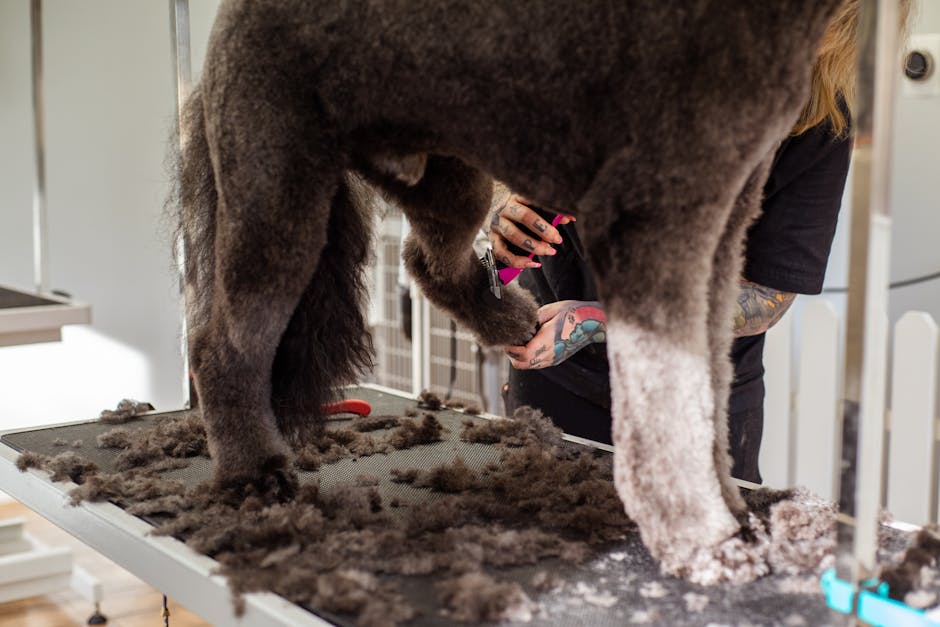Pet ownership brings immense joy, but it also necessitates a deep understanding of each animal’s unique requirements. While the broad strokes of care often overlap, individual species and even individual animals within a species, possess distinct grooming needs that must be addressed to maintain their health and well-being. This article explores the variations in grooming requirements across a spectrum of animals, highlighting the importance of bespoke care.
A crucial aspect of responsible pet ownership is recognizing the specific needs of your companion. From the delicate coat of a Persian cat to the rugged hide of a terrier, each animal necessitates a different approach to maintaining hygiene and preventing health issues. A one-size-fits-all grooming routine simply won’t suffice.
Understanding Canine Grooming: A Spectrum of Needs
Canine companions, in their diversity, demonstrate a wide array of grooming requirements. A fluffy Golden Retriever, for example, necessitates regular brushing to prevent matting and maintain a healthy coat, while a short-haired terrier demands less frequent attention, but requires thorough checks for fleas and ticks. Moreover, breeds with long ears, like certain hounds, benefit from regular cleaning to prevent infections.
Beyond breed-specific differences, consider individual factors. A senior dog, for instance, might experience a decline in their natural grooming abilities. This may require a more hands-on approach, with specialized tools and techniques to ensure their comfort and hygiene. Likewise, dogs with underlying health conditions, such as allergies or skin issues, might need tailored grooming plans to alleviate discomfort and promote healing. This often involves consulting a veterinarian to determine the best course of action.
The Felid Family: A Look at Feline Grooming
Cats, notoriously independent creatures, still require regular grooming to maintain their health and well-being. Long-haired breeds, like Persians and Maine Coons, need daily or every-other-day brushing to prevent their fur from matting and to remove loose hair. Short-haired cats, while not requiring the same level of daily brushing, still benefit from weekly brushing to remove dead hair and distribute natural oils.
Feline grooming isn’t solely about brushing. Regular inspections of their ears are crucial to detect any signs of infection, and their teeth need regular cleaning, either by professional dental care or by using appropriate cat-specific dental products. These routine inspections are critical to detect problems early, leading to effective intervention.
Rodents and Rabbits: Dietary and Hygiene Considerations
Smaller pets, like rodents and rabbits, require a different approach to grooming. Their sensitive skin and delicate coats necessitate gentle handling and specialized tools. These animals, particularly rabbits, benefit from regular nail trimming and dental care, which can often be easily managed at home. Furthermore, their dietary choices directly impact their coat health, requiring careful selection of nutritious foods to avoid nutritional deficiencies. A healthy diet is often a vital aspect of their overall grooming regimen.
Equine Elegance: Maintaining the Majestic Horse
Equine grooming goes beyond just a tidy appearance; it’s vital for maintaining their health. Horses, owing to their large size, require specific equipment and techniques. Regular brushing, hoof care, and cleaning of the hooves and legs, are essential aspects of equine grooming. The unique structure of their coat and the sheer size of the animals necessitate a considerable commitment in time and resources, but it’s crucial for their physical well-being. Veterinary advice and the expertise of knowledgeable farriers are paramount for a horse’s grooming regimen.
The Importance of Specialized Products
Choosing the right grooming tools and products is equally crucial. Using human-grade products on animals can be harmful, so selecting specifically formulated animal shampoos, conditioners, and brushes tailored to individual animal types is paramount. These products are specifically formulated to avoid skin irritations and support the overall health of their coat.
Beyond the Physical: The Emotional Dimension
Grooming isn’t merely a physical act; it’s a critical aspect of bonding with animals. The process of brushing, handling, and getting to know their bodies allows for early detection of potential health issues and strengthens the bond between owner and pet. Regular physical contact during grooming can reduce stress and promote a sense of calm and familiarity.
Conclusion: A Comprehensive Approach
Different animals have unique grooming needs. A tailored approach, which considers breed-specific characteristics, individual health factors, and the use of appropriate tools and products, is essential for maintaining their physical and emotional well-being. By understanding these variations and implementing the appropriate grooming practices, pet owners can contribute significantly to their animal companions’ longevity and happiness. It’s not just about tidiness; it’s about a commitment to comprehensive care that respects the individual needs of each pet.
